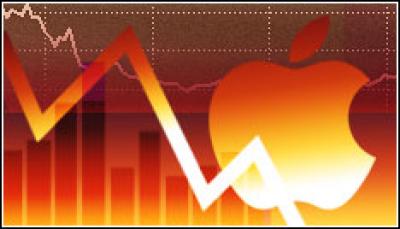Windows 7 Could Bite Into Apple’s Market Share

Although Apple Macs have gained share in recent years, the launch of Windows 7 will lead to a flood of inexpensive PCs from Microsoft’s manufacturing partners
The launch of Windows 7 may dampen Apple’s revenues in the short term, according to a recent analyst note from RBC Capital Markets, but in the long term the Mac franchise will remain hardy.
“We do not expect Microsoft’s pending launch of Windows 7 … to erode Apple’s Mac franchise,” Mike Abramsky, an analyst with RBC Capital Markets, wrote in a 20 Oct. research report. “The six-to-one domestic popularity of the 3GS iPhone over the $99 version to us illustrates consumer willingness to pay a premium for Apple innovation.”
Apple posted a strong earnings report for the fourth fiscal quarter of 2009, reporting revenue of $9.87 billion (£6bn) and a quarterly profit of $1.67 billion. Buoying those numbers were strong sales of the iPhone 3GS, which moved 1 million units in the three days following its release in June, and 3.05 million Macs. The company’s sales of Macs rose 17 percent year over year, while its laptop sales increased year over year by 35 percent.
Although Apple is a substantial presence in the portable media device and smartphone markets, some analysts see the potential for an eventual reversal in the company’s fortunes. Brian Marshall, an analyst with Broadpoint AmTech, suggested in an 12 Oct. research note that the carrier subsidies that Apple earns from the iPhone are unsustainably high in the long term.
But Abramsky said he sees a larger short-term threat to Apple from Microsoft and Windows 7, the launch of which, “along with expected positive reviews, publicity and marketing/promotions, may offer near-term headline risk to [Apple’s] valuation.”
Part of the short-term risk likely comes from the massive marketing push that Microsoft and its ecosystem partners have devoted to the Windows 7 launch. Given the variety of PCs priced lower than Macs, a market flooded with inexpensive, Windows 7-loaded product was predicted by analysts before the operating system’s 22 Oct. debut in general release.
“It shouldn’t surprise you that the PC deals will be strong,” Rob Enderle, an analyst with the Enderle Group, said in an e-mail to eWEEK before the launch. “Most of the inventory won’t hit shelves (and they built a lot of it) until the 22nd and the hardware vendors will be doing whatever they can to move it … which should lead to some very aggressive system and bundle pricing.”
Any change in Apple’s share of the overall PC market will be watched closely over the next few quarters. Much of Apple’s gains in the arena over the past few years likely came at the expense of Windows Vista, Microsoft’s infamously bloated operating system; whether users who jumped into the Mac camp will decide to return to PCs, given the reported reliability of Windows 7, is a question certainly on the minds of both Apple and Microsoft executives.
A combination of refreshed Macs and products rumored to be in Apple’s pipeline for 2010 could help mitigate the effect of Windows 7 on Apple’s market share across various divisions. Apple’s most recent earnings call saw company executives predicting a decline in gross margins for next quarter, a factor they attributed not to competitive pressures but a mix of rising air-freight costs, lower margins on new products and declining “Snow Leopard” sales as the market for that operating system reaches its saturation point.
Overall, Apple is predicting revenues of $11.3 billion for the holiday quarter. That suggests a company that could be affected, but not damaged, by a Microsoft resurgence.